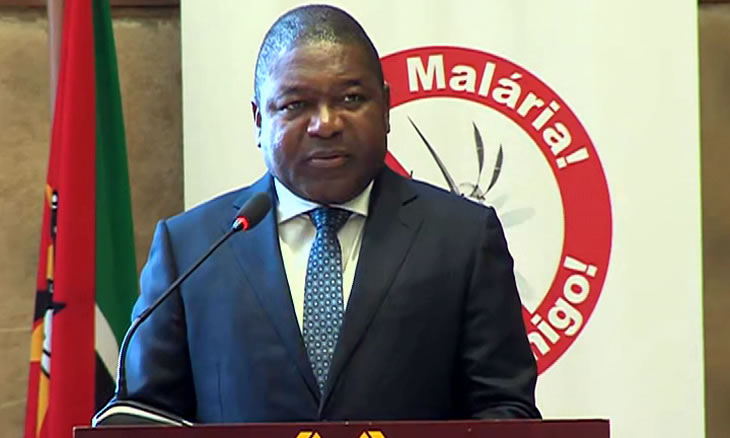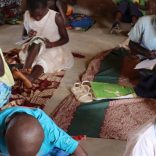Limak Group and UEM announce partnership to support Mozambique’s next generation of women ...
100 million dollars a year needed to fight malaria in Mozambique

Photo: O País
Mozambique needs about 100 million US dollars a year to prevent and fight against malaria, announced President Filipe Nyusi in Maputo on Thursday.
He was speaking at the opening of the First National Forum on Malaria. The forum, Nyusi said, is intended to set up a platform for dialogue, and for monitoring and assessing malaria, involving all of society in the battle against this lethal disease.
The anti-malaria programme “costs annually between 85 and 124 million dollars, and the state does not have this money”, he added. “Hence we need to be more creative in our responses, creating synergies and seeking investments from civil society and other partners”.
He warned that climate change will worsen the malaria situation – it was estimated that for every one degree rise in the average temperature, there would be a two per cent increase in the incidence of malaria.
The country is not affected by the disease in a uniform manner – the incidence is much worse in the central and northern provinces than in the south. Taking the country as a whole, malaria was responsible, in 2016, for 40 per cent of out-patient consultations, 56 per cent of hospital admittances, and 29 per cent of deaths in health units.
This was a heavy burden on the country’s economy, Nyusi pointed out, since workers who fall ill often have to take many days off work while they are being treated. Much of the government’s health budget is spent on malaria – to acquire anti-malarial drugs, equipment for making diagnoses, and for preventive measures, such as mosquito nets and spraying homes with insecticide.
“Our message to the communities should be clear, short and direct – we have to stop the spread of malaria”, declared Nyusi. “It’s time for us to act together. Only by working in a coordinated manner can we increase our effectiveness in fighting malaria”.
He warned against the belief that malaria “is a lesser evil”. Because people know malaria can be cured, they tended to neglect protective measures.
“We think more about cure than protection”, said Nyusi. “When some of us feel the symptoms of malaria, we resort first to home cures, or take drugs without recommendations from a health professional. Instead of being treated, we take the medicines without any confirmation from the professionals”.
Too many people still believe myths about mosquito nets – such as that they are suffocating or cause a lack of air – and so refuse to sleep under nets. And in some households, he noted, priority in using the nets goes to the head of the household, and not to young children, who are those most at risk.
Such facts, Nyusi said, “show that the problem is us. It’s our attitude towards malaria. Improving environmental management, social and behavioural change, and the promotion of social and economic development are means through which we can combat this disease”.
The representative of the World Health Organisation (WHO), Djamila Cabral, told the Forum that all the countries with the highest prevalence of malaria are in sub-Saharan Africa. In 2016, 216 million cases of malaria were reported and 195 million (over 90 per cent) were in sub-Saharan Africa. Sub-Saharan Africa also accounts for more than 90 per cent of the world’s deaths from malaria.
Nonetheless, the death toll is falling. Cabral said that, in the 15 worst affected African countries, known deaths from malaria fell from more than 500,000 in 2006 to about 407,000 in 2016. African governments have now pledged to reduce malaria prevalence by 40 per cent in the coming period.












Leave a Reply
Be the First to Comment!
You must be logged in to post a comment.
You must be logged in to post a comment.